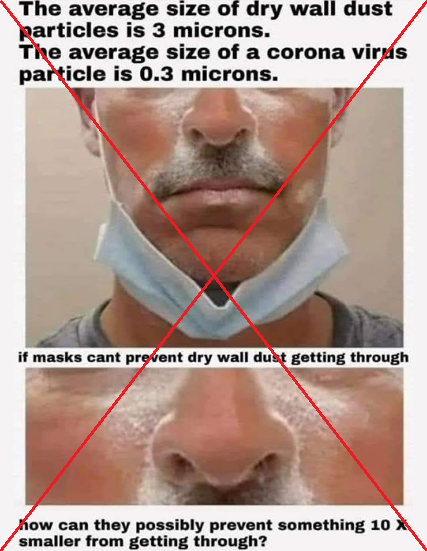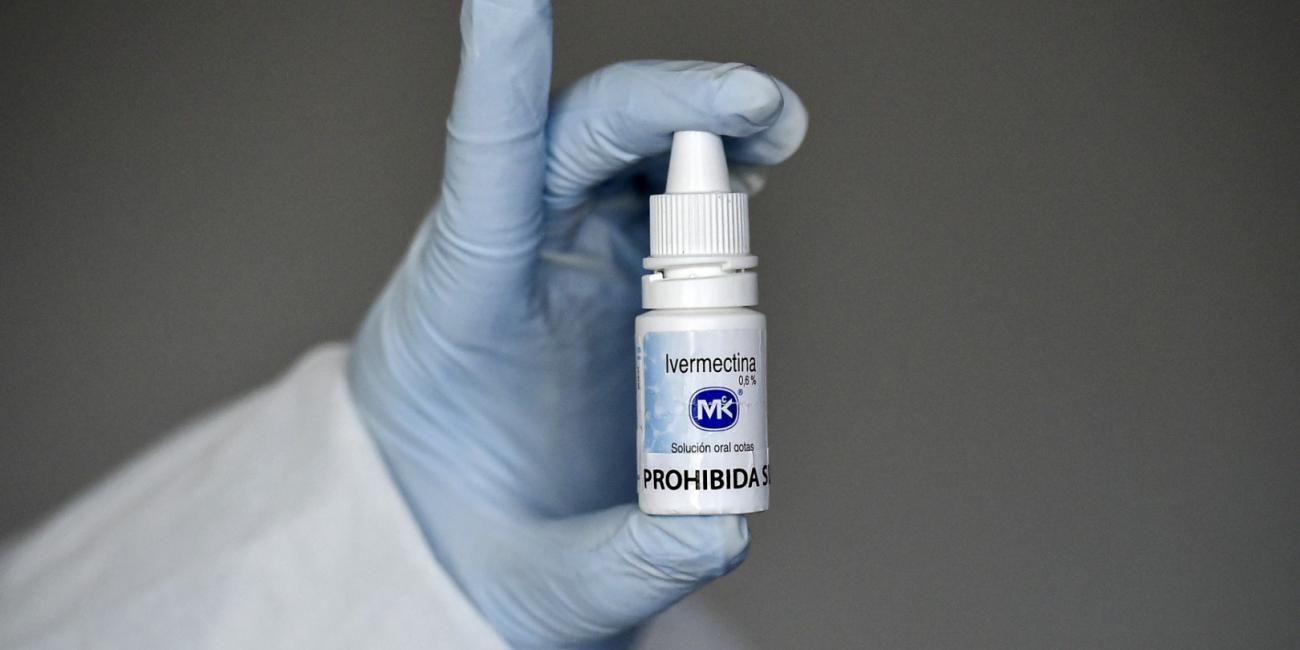
Drywall dust penetration does not mean face masks are ineffective against the coronavirus
- This article is more than five years old.
- Published on July 13, 2020 at 21:40
- Updated on September 2, 2020 at 19:12
- 3 min read
- By W.G. DUNLOP, AFP USA
“The average size of dry wall dust particles is 3 microns. The average size of a corona virus particle is 0.3 microns,” says a July 9, 2020 Facebook post that features two images of a man with a surgical mask under his chin, his face coated in white dust.
“If masks cant prevent dry wall dust getting through how can they possibly prevent something 10 X smaller from getting through?” the post says.

The claim also appears on Facebook here, here and here, with some versions giving different sizes for drywall dust or for the virus.
In the early days of the coronavirus pandemic -- which has killed more than 569,000 people worldwide, nearly a quarter of them in the US -- health authorities recommended mask use for people who were sick or those caring for them.
That recommendation has since been expanded to the general population due to the risk of people who are asymptomatic transmitting the virus, sparking a major backlash from those who balk at the inconvenience of wearing masks or view them as an impingement on their personal freedom.
But whether or not a mask can block drywall -- used in construction and also known as plasterboard or wallboard -- dust is not a measure of its effectiveness in curbing the spread of the coronavirus.
“A mask doesn’t have to be 100 percent effective in order to have a big effect on slowing down the outbreak,” Dr. Benjamin Neuman, an expert in coronaviruses who chairs the Biological Sciences department at Texas A&M University-Texarkana, told AFP by email.
“There are good studies now showing that a mix of homemade and surgical masks are effective at dramatically reducing the spread of COVID-19,” he said.
Dr. Julian Leibowitz, an expert in coronaviruses who is a professor of microbial pathogenesis and immunology at Texas A&M’s College of Medicine, agreed.
“There is now plenty of evidence that even cloth masks cut down the risk of transmission if either the person who is infectious or the unexposed person are wearing one. If both are wearing a mask it cuts down the risk by between 75-90 percent,” he said by email.
“In addition the size of the viral particle is irrelevant. It is the size of the droplets that contain the virus that counts,” Leibowitz said.
Neuman said that the coronavirus measures around 100 nanometers, while “the respiratory droplets that are the best candidate for spreading coronavirus range up to about 20 micrometers (20,000 nanometers) in size” -- substantially larger than the figures given for drywall dust in the Facebook posts.
“Masks can give some protection even by blocking just the largest droplets,” and the idea is to “use whatever means are available to everyone to block as many respiratory droplets as possible,” he said.
The US Centers for Disease Control and Prevention emphasizes the danger of asymptomatic transmission of the coronavirus and recommends cloth face coverings as a means to reduce this risk.
“You could spread COVID-19 to others even if you do not feel sick,” it says, adding: “The cloth face cover is meant to protect other people in case you are infected.”
AFP Fact Check has debunked more than 550 examples of false or misleading information about the novel coronavirus crisis. A complete list of our fact checks on the topic in English can be found here.
Copyright © AFP 2017-2026. Any commercial use of this content requires a subscription. Click here to find out more.
Is there content that you would like AFP to fact-check? Get in touch.
Contact us




